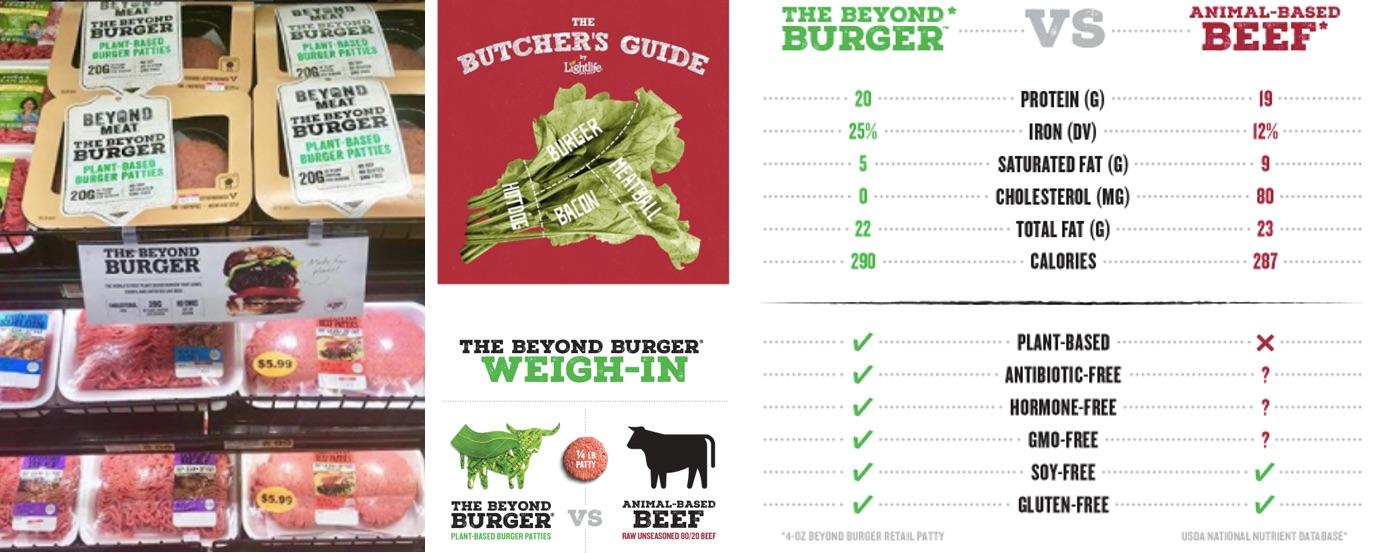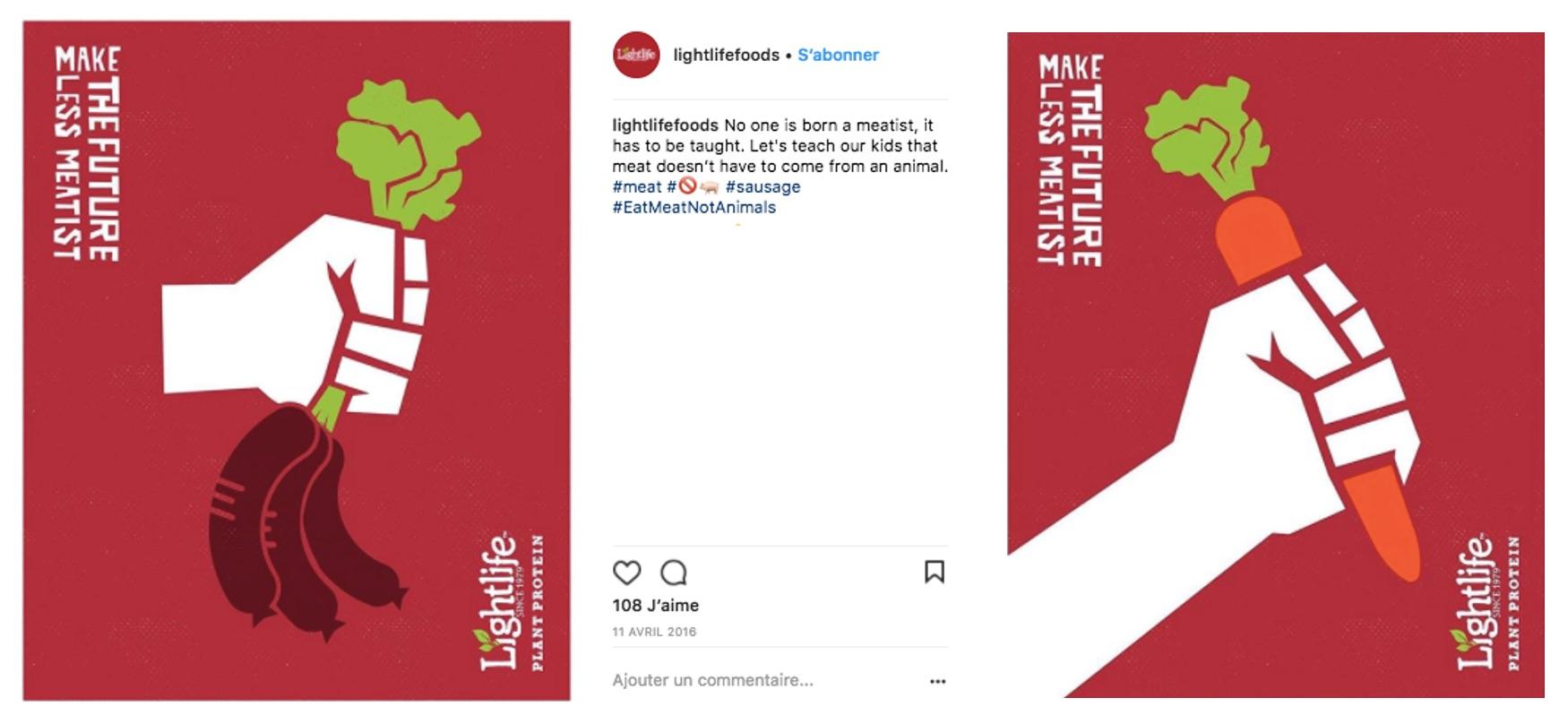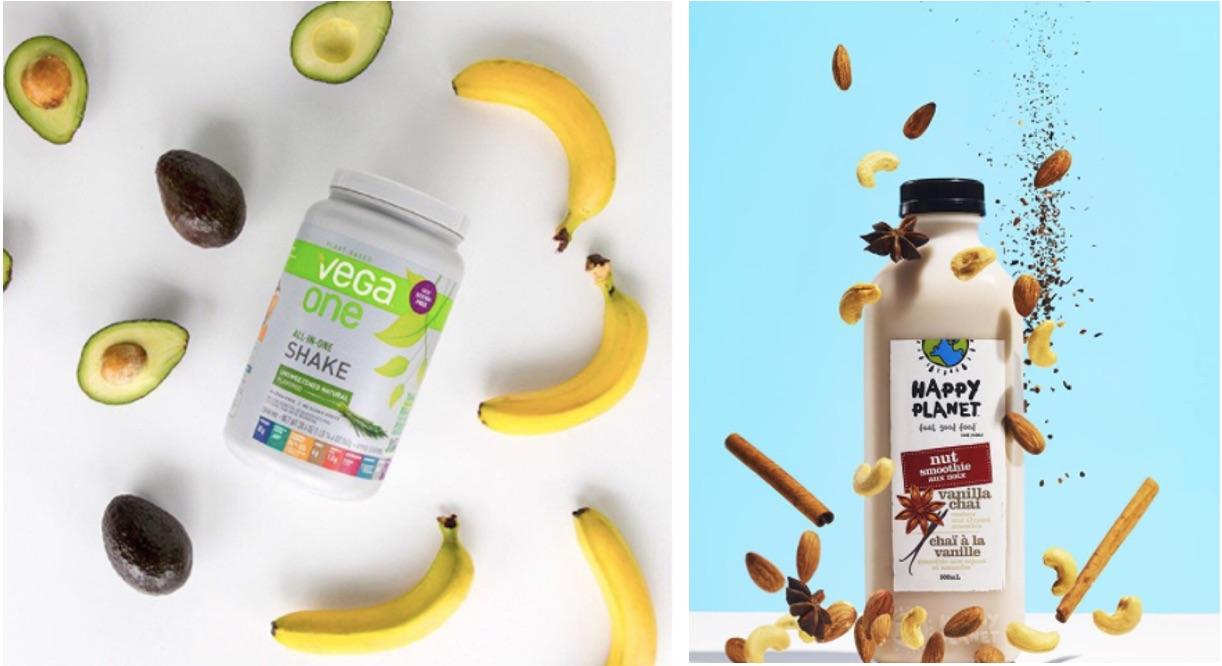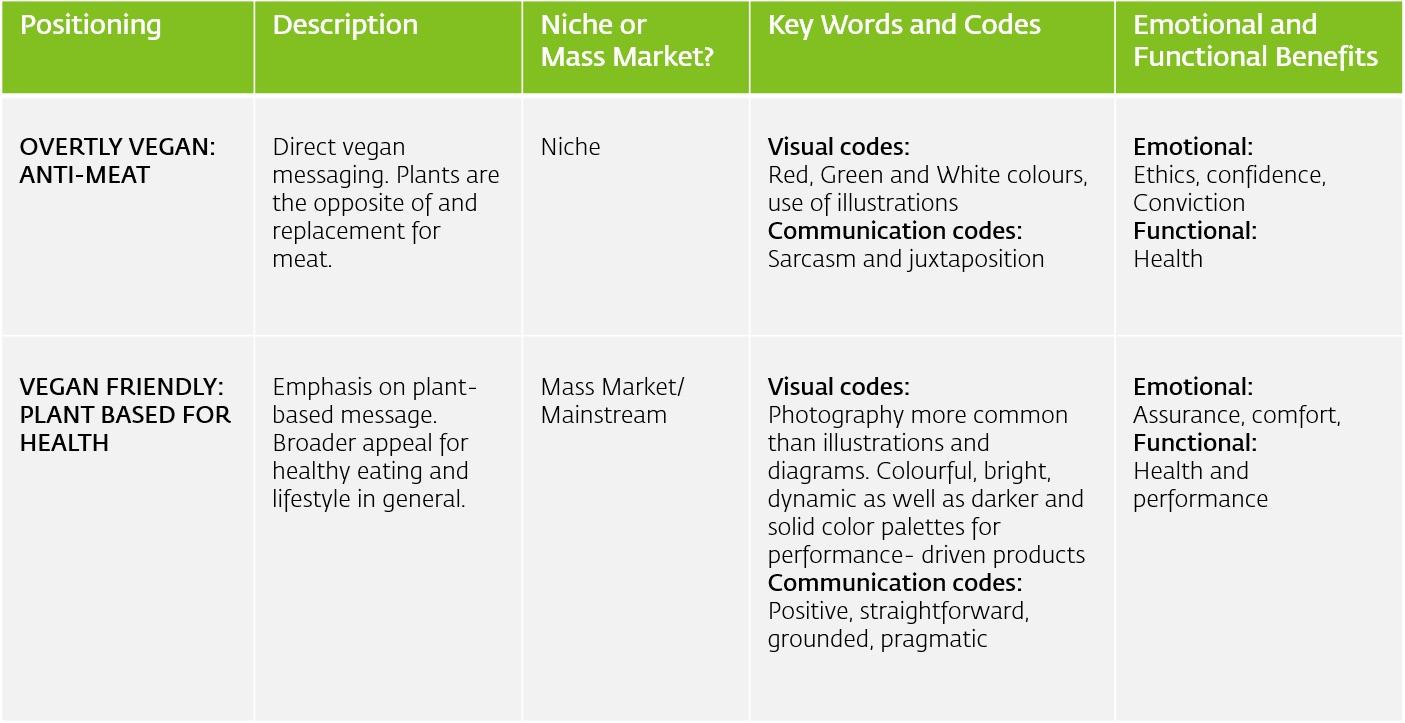

Embrace the accelerating health and wellness trend with a focus on brands’ plant-based strategies. The surge in vegetarian and veganism has transformed this once-niche field, with ‘Going Vegan’ predicted as the major food trend of 2018. Online searches for ‘plant-based’ tripled from 2016 to 2017, and consumers now buy nearly three times more plant-based products online than in January 2016. In the US, 6% of the population identifies as vegan, marking a 500% increase since 2014. Dive into the latest wave of healthy eating, specifically exploring the recent phenomenon of the growing vegan movement and the strategic plant-based approaches adopted by brands.
It comes as no surprise that brands and businesses are making moves to enter this space. A senior executive at Alphabet, the parent company of Google, named the consumption of plant-based proteins instead of meat as the number one “game-changing” trend of the future. Similarly Nestlé, the world’s largest food company, predicts that plant-based foods will continue to grow. Even Kentucky Fried Chicken is said to be experimenting with faux-chicken that would be vegetarian or vegan compatible.
So what does this all mean for food brands? How can they craft their plant-based strategy to win?
In order to capitalize on the plant-based trend, a brand needs to understand the perceptions, needs, and expectations of their target audience towards these types of products by conducting customer research. Some of the questions that may be of interest include:
Unlocking these questions will inform brand and product strategies, marketing and communications, through to activations and innovation.
Harnessing customer insights on vegan and plant-based preferences is pivotal for a brand’s plant-based strategy. Delve into the nuances of brand positioning, determining the distinctive niche a brand or product should occupy in the category. Uncover the strategic choices of codes and claims for packaging and communication, shaping a unique identity in the realm of plant-based offerings. Explore how brands can navigate the landscape, aligning their vision with consumer perceptions through a well-crafted plant-based strategy.
While it is niche and trending, pushing the vegan messaging too strongly may risk leaving out mainstream healthy-eating customers or those who are new to the category and still have their reservations. So the brand must decide how heavily they want to emphasize plant-based or vegan messaging.
To further explore how brands are grappling with positioning and messaging in this emerging category, we analysed numerous plant-based and vegan food brands. Though new vegan “codes” continue to surface every day, our analysis revealed a dynamic range of claims and expressions among vegan food brands spanning two main approaches to positioning: one with overt and direct messaging and codes, and another that is more subtle.
The first positioning that stands out in the plant-based category leverages direct vegan messaging: Plants are framed as the opposite of meat, and these products are clearly positioned as NOT-meat. This positioning will have strong appeal to the hard-core vegan niche, but risks excluding the mainstream crowd who may not be as passionate, but instead are aiming for a healthy and balanced lifestyle.
Among brand communications for the Overtly Vegan positioning, noteworthy themes include:
1. Sarcasm: Shows traditional butcher imagery but substitutes plants instead. Green and Red as important colours.

Shows traditional butcher imagery but substitutes plants instead
2. Plant Meat: Plant-based “Meat” presented in juxtaposition to animal meat. Animals are represented by illustrations and their plant-based counterparts as animal silhouettes filled with green veggies. Again, red and green are featured prominently.

Plant-based “Meat” presented in juxtaposition to animal meat
3. Activism: Codes borrowed from political posters giving a sense of activism or revolution. Again brand expressions feature red, white and green.

Codes borrowed from political posters giving a sense of activism or revolution
The second positioning communicates strongly on a plant-based message, with less prominent vegan rhetoric. For example, “vegan” may appear as a secondary claim or label on the packaging, along with non-GMO, organic, gluten free, or others. This positioning still captures the niche vegan audience, but is also mass market compatible, appealing to customers who are looking for a product to deliver naturalness, freshness, and energy, while the product happens to be vegan.
Among brand communications for the vegan-friendly positioning, noteworthy themes include:
1. Dynamic Ingredients: Raw product ingredients shown around packaging in a dynamic way signaling freshness and movement. Colourful and bright tonality.

Raw product ingredients shown around packaging in a dynamic way signaling freshness and movement.
2. Grounded Performance: Plant based foods presented in a strong and fortified way, giving assurance and power to their claims. Expressions include pictures of humans exhibiting strength or high performance, with less emphasis on the ingredients themselves. The colour palette differs from the previous themes- use of darker colours gives a more solid and grounded feel.

Plant based foods presented in a strong and fortified way, giving assurance and power to their claims.
As you can see, the Overtly Vegan positioning emphasises the composition and process of the not-meat product. It educates the customer with diagrams and facts, as there may be a learning curve for many customers who are new to vegan eating. With the Vegan Friendly positioning, while the ingredients are important, the messaging highlights the efficacy or benefit of the product- for example, “If you eat this, you will feel energized and healthy”.

Overtly Vegan positioning emphasises the composition and process of the not-meat product.
In the expansive landscape of the vegan food space, brands can explore diverse positioning opportunities beyond Overtly Vegan and Vegan Friendly. Striking a balance between niche and mainstream appeal is ideal, allowing brands to cater to both types of consumers. Consider, for instance, offering Vegan Protein in trendy gyms for widespread accessibility while also sponsoring vegan-specific causes or events related to animal rights or sustainable agriculture. Recognizing the unique connection customers have with the vegan food category as both a lifestyle and a conviction, brands can aim for a strategic balance, ensuring broader appeal. Explore the myriad possibilities within a brand’s plant-based strategy, fostering connections with diverse consumer segments.
In crafting a robust plant-based strategy, thorough consumer research and precise category mapping are essential. These steps narrow down positioning directions, facilitating the identification of a cohesive brand positioning. This defined positioning serves as the cornerstone for all brand touchpoints, influencing product design, marketing communications, channel selection, digital experience, and more. Amidst the dynamic evolution of the vegan category, establishing a solid positioning is critical for new brands. It ensures the consistency needed to build brand awareness and foster a loyal following, while also allowing for iterative adjustments to align with evolving trends and consumer needs. Explore the significance of a well-defined plant-based strategy for brands navigating the ever-changing landscape.
The plant-based category is becoming established, launching into a phase of growth with no signs of slowing down, and may even ultimately become the mainstream way of eating in a not-so-distant future. The demographic below age 35 is leading the way in the worldwide shift away from consuming animal products: 42 percent of all vegans are ages 15-34 compared to just 14 percent who are over 65. Besides individuals and generations, we see large companies like Google and even countries such as China leading the movement to eat more plant-based foods for the sake of sustainability.
Optimizing the human experience through health is paramount, with consumers increasingly passionate about well-being. In this competitive landscape, brands can thrive by offering both functional and emotional benefits that genuinely impact lives. Navigating this space requires a deep understanding of consumers, crafting strategies, and upholding plant-based brand equity. In the evolving food industry, success lies in a brand’s plant-based strategy that resonates. Explore how brands can stay both health-focused and irresistibly delicious in this dynamic scenario.
A Labbrand Group Company © 2005-2025 Labbrand All rights reserved
沪ICP备17001253号-3To improve your experience, we use cookies to provide social media features, offer you content that targets your particular interests, and analyse the performance of our advertising campaigns. By clicking on “Accept” you consent to all cookies. You also have the option to click “Reject” to limit the use of certain types of cookies. Please be aware that rejecting cookies may affect your website browsing experience and limit the use of some personalised features.